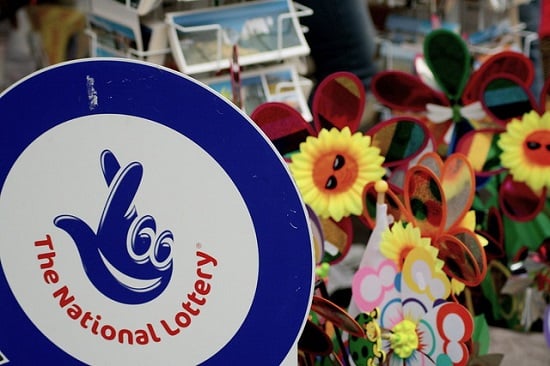
The National Lottery's sustainability is a main focus of a new inquiry into its future
Inquiry into future of the National Lottery launched
The DCMS Committee will consider what help funding distributors need to manage “changing trends” in returns to good causes.
A parliamentary inquiry is to examine the future of the National Lottery and how it can raise more money for good causes like the arts.
The DCMS Committee will investigate whether the rise of society lotteries and other changes in the lottery market are “having an impact on the way people choose to spend their money”, and consider whether “greater flexibility” is needed for the National Lottery operator to respond to changing consumer habits.
The announcement precedes the Gambling Commission’s 2020 competition for a new operating licence for the Lottery, to take effect in 2023.
‘Maximise returns for good causes’
The inquiry will focus on boosting Good Causes funding, 20% of which is allocated to the arts.
The Committee is seeking evidence on how the next operating licence should be structured to “maximise returns for good causes” and how lottery funding distributors like Arts Council England and Creative Scotland can be “better supported to manage changing trends in receipts for good causes”.
ArtsProfessional recently reported that National Lottery operator Camelot generated about £16.5bn for its Good Causes fund in the 2018/19 financial year, about £600,000 less than the previous year.
But the amount available to distribute to arts, heritage, cultural, sporting and charity groups fell another £39.6m after Camelot diverted that money towards its own marketing budget.
An Arts Council England spokseperson said the inquiry should consider how peoople benefit from the National Lottery and "ensure any changes do not result in less money for arts, sports, heritage and communities".
Need for sustainability
The National Lottery’s operating model has come under increasing scrutiny following a long-term decline in sales.
The Lottery’s fortunes have reversed in recent years: It experienced a £255m growth in sales in the last financial year and a £26.4m increase in 2017/18.
But returns to Good Causes remain hundreds of millions of pounds shy of their level in 2015/16 – a record £7.6bn sales year.
The Committee will consider what challenges the next National Lottery operator is likely to face – in particular, the competition posed by society lotteries – and what the Government and Gambling Commission can do to mitigate them.
DCMS Committee Chairman Damian Collins said that “a lot has changed since the first lottery draw was made in 1994, and this is the right moment to look at how the new licence should be awarded and managed”.
“Against a background of falling lottery receipts we want to consider the sustainability of the lottery.”
Failure to increase funding
The Public Accounts Committee recently held a separate inquiry into the decline in National Lottery income. The Committee’s report last year said good causes “lost out” when the operating licence was last renegotiated.
The 2012 licence was “supposed to incentivise Camelot to maximise returns to good causes,” the report said.
“But returns for good causes were only 2% higher in 2016–17 than in 2009–10, whereas Camelot’s profits were 122% higher.”
The MPs concluded the current operating licence is inadequate to protect returns to good causes as Lottery players increasingly opt for scratch cards and instant win games, which return a lower proportion of their profits to the Good Causes fund.
A Camelot spokesperson welcomed the latest inquiry, and said it looks forward to submitting evidence to it.
Join the Discussion
You must be logged in to post a comment.